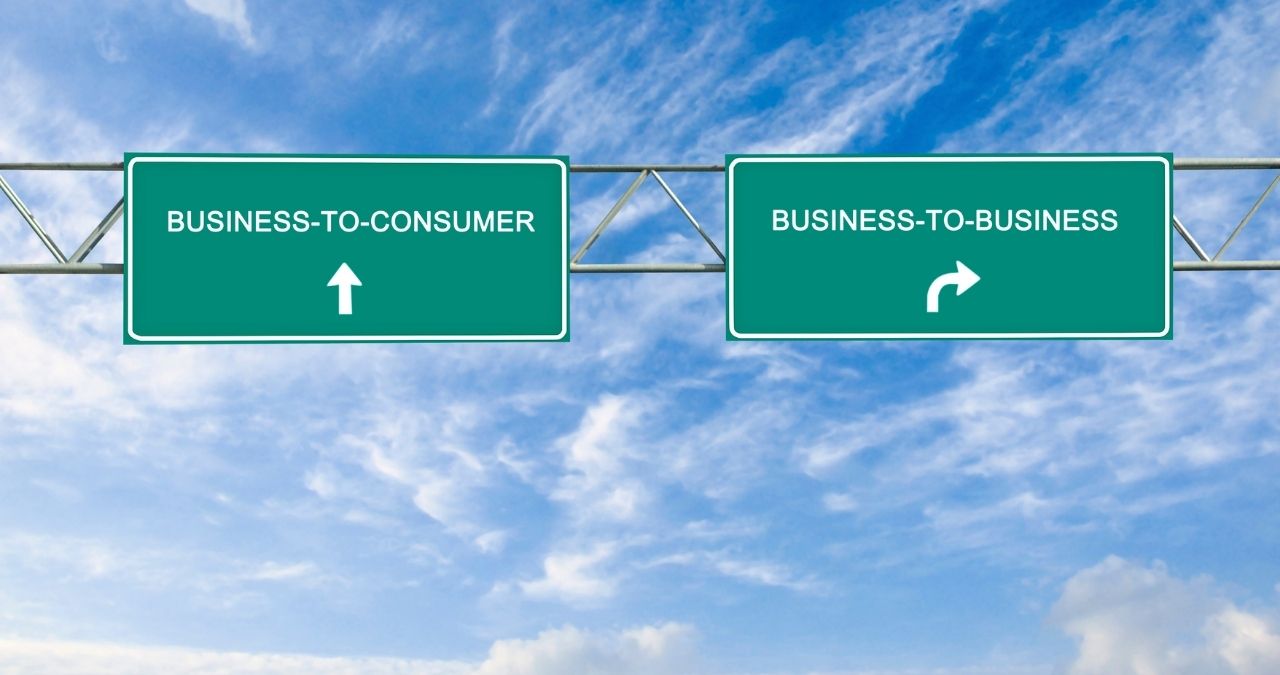
Business owners and entrepreneurs are inundated with decisions when first venturing out into the complex world of business. One of these essential decisions includes answering the question of whether their business should sell B2B or B2C. What does this mean exactly? A B2B is a “business-to-business” company, while a B2C is a “business-to-consumer” one. Put simply, a “business-to-business”, or B2B logistics model will provide products and services to other businesses and a “business-to-consumer” B2C logistics model sells directly to its customers.
B2B Logistics vs B2C Logistics
Examples of B2C and B2B Logistics
It may help to clarify B2C and B2B by explaining a real-world scenario. Let’s say you’re a farmer who just grew 500 pumpkins. You have the choice to go with the B2C method and set up a pumpkin patch or farm stand and sell them all yourself. In doing this, you will have the freedom to charge whatever you please. However, you will obviously need to expend more of your own time and energy into selling. On the other hand, you can go the B2B route and distribute these pumpkins to a retailer at a discounted price. Whether it’s a grocery store or a restaurant, this will take away the extra legwork and precious time that would otherwise go into B2C. As you can see, there are pros and cons to each.
Which avenue is right for you?
Neither option is always going to be the better one. The perfect fit will depend entirely on the details of your business. Analyzing your goals, your infrastructure, and your industry will greatly assist you in determining the right path. If your business has a massive amount of products, B2B may help you when it comes to the responsibility of bulk shipping. It will also give you the potential to grow and expand your company by growing relationships with other companies across the globe. If you don’t have a lot of products and you’re more quality over quantity (an Etsy shop for example), B2C will be the better option. This will take more work but it will also mean more money in your pocket in the short term.
Some aspects of B2B will include multiple pricing tiers and discounts, an account manager will handle any issues, the website will be closer to an account dashboard, and the checkout process has multiple options. In contrast, some B2C aspects include a single pricing tier, a customer service team will be helping customers, the website is designed to attract and convert, and the checkout process is streamlined.
Stages of purchase for each
A big way that B2B logistics and B2C logistics differ is seen in the three main stages of purchase (pre-purchase, purchase, and post-purchase). In the pre-purchase stage, a B2C order will be much less complex. The pricing is pre-set, unlike the varying prices of B2B orders. B2B typically entails large orders, while B2C will consist of a smaller volume. Additionally, with B2B orders, there will be a larger number of customer service employees compared to B2C. In the purchase stage, the B2B company will require more time in the actual selling stage.
When it comes to payment, B2C is typically done immediately with debit and credit cards, cash or check. B2B payments are done within the contracted time duration. In the post-purchase stage, shipping and order fulfillment will take much longer with the B2B company than the B2C. B2B will typically have better customer relations overall. The umbrella of customer relations isn’t just service. It also involves marketing, on-time delivery, and proper order fulfillment. This is a full customer experience that may be lacking in B2C companies. Returns are also an essential part of any business. There should always be a suitable system in place. In this case, B2C businesses are typically easier and straightforward while B2B’s involve going through a reverse logistic process that can get quite complicated.
Determining if B2B or B2C is right for your business is one of the more important first decisions. Some businesses even opt for both, so don’t necessarily think that you have to choose one over the other. Once you feel confident in answering this question, you should be well on your way to a solid and thriving business.
Nebraska Warehouse One-Stop-Shop | Technology Enabled 3PL Value-Added Services Warehouse | Freight Broker | Logistics
Nebraska Warehouse doesn’t just help to facilitate your shipments, but we are truly a one-stop-shop solutions provider. Our services include:
-
- Professional Storage Development and Management
- Quality controlled Environment
- Responsive, Personal Customer Service
- Reasonable Price
- Real Estate Development and Management
- LTL & FTL Shipping
- Refrigerated Trucking & Storage
- E-Technology Software
- Transportation Freight
- Dedicated Contract Warehousing
- 3PL Public Warehousing
- 3PL Specifications
